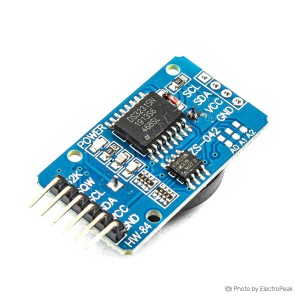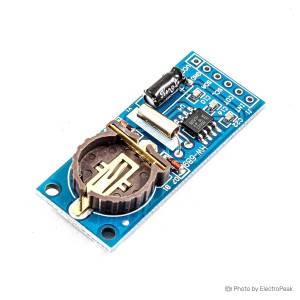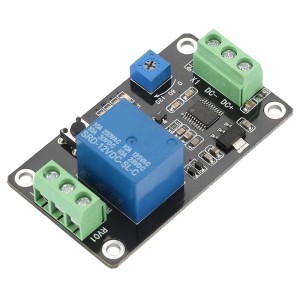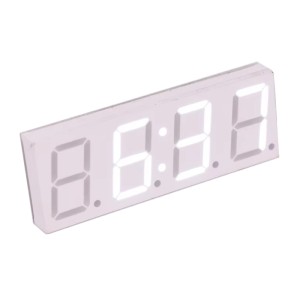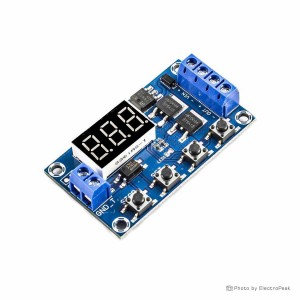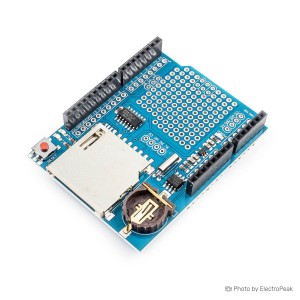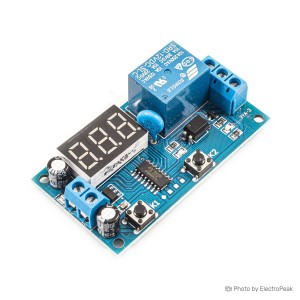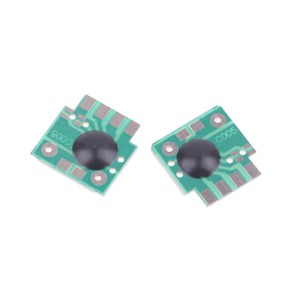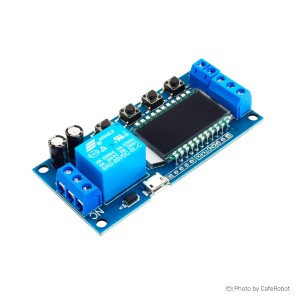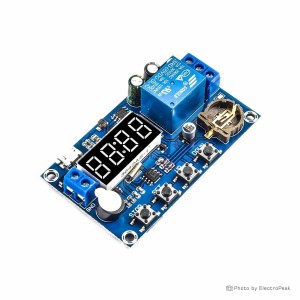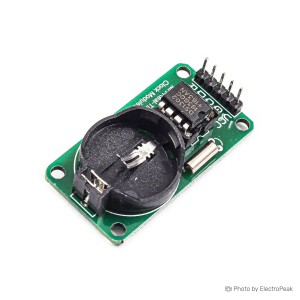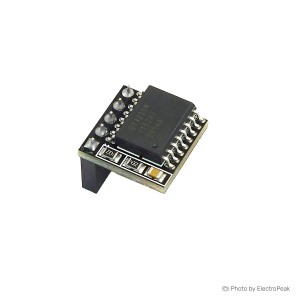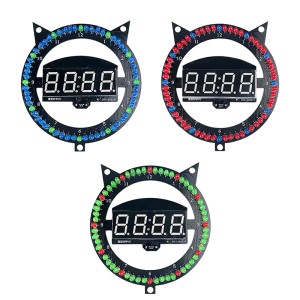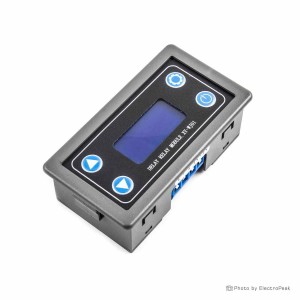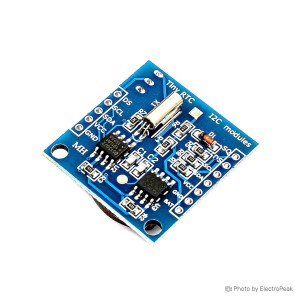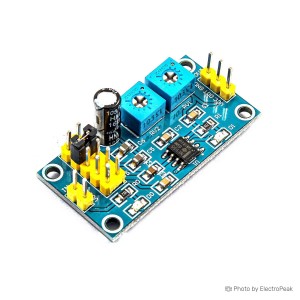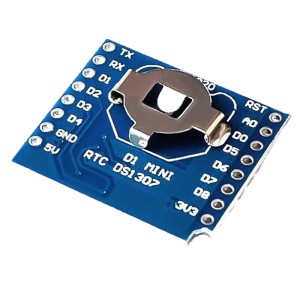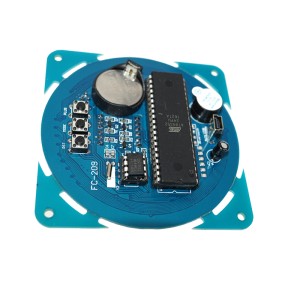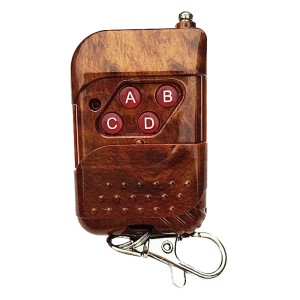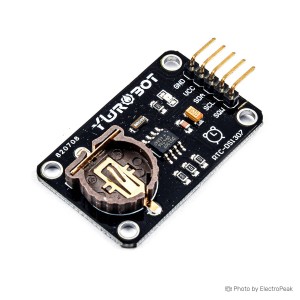When deciding between the DS3231 and DS1307 date and time modules, it's crucial to weigh their differences in accuracy and temperature compensation. The DS3231 stands out for its exceptional precision, providing highly accurate timekeeping even in fluctuating temperatures. In contrast, the DS1307, while reliable, may experience minor deviations. If your project demands meticulous time accuracy, especially in varying environmental conditions, opting for the DS3231 ensures superior performance. Consider the specific requirements of your application to make an informed choice between these widely used real-time clock (RTC) modules.
Date & Time Modules
-
NE555 Timer Breakout & Pulse Generator Module
Out of stock -
YwRobot DS1307 Real Time Clock RTC Module
Out of stock
Date And Time Modules
Date and Time modules are essential components for various applications, providing accurate timekeeping and date functionality. Popular modules include the Arduino Data Logging Recorder Shield, DS1302 and DS3231. These modules play a crucial role in projects requiring precise time tracking, scheduling, and data logging. They are widely used in automation, data recording, and electronic projects, ensuring synchronization and time-related functionalities.
Price of Date and Time Modules
The cost of date and time modules varies depending on the specific model and features. It's essential to consider your project requirements and budget when choosing a module. Prices can range from budget-friendly options for basic functionality to more advanced and feature-rich modules that come at a higher cost.
Tips for Buying Date and Time Modules
When purchasing date and time modules, consider factors such as accuracy, compatibility with your microcontroller or platform, ease of integration, and additional features like temperature compensation. Reading user reviews and seeking recommendations from the community can help you make an informed decision. Additionally, ensure that the module meets the specifications required for your project to avoid any compatibility issues.
Popular Date and Time Modules
- Arduino Data Logging Recorder Shield: Ideal for data logging applications, this module seamlessly integrates with Arduino boards, providing an efficient solution for recording time-stamped data.
- DS1302: Known for its simplicity and low power consumption, the DS1302 is a real-time clock (RTC) module commonly used in various electronics projects.
- DS3231: Renowned for its high accuracy, the DS3231 RTC module is temperature-compensated and features a built-in crystal oscillator, making it a reliable choice for time-sensitive applications.
- PCF8563: This compact and versatile RTC module offers precise timekeeping and is suitable for applications where space is a critical factor.
- DS1307: Widely used in DIY electronics, the DS1307 RTC module is known for its ease of use and compatibility with microcontrollers like Arduino.
- Timer Models with Relay and LED Display: Perfect for automation projects, combining timer functionality with relay control and a display for efficient scheduling tasks.
- Timer Models with MOS and Display: Ideal for projects requiring MOSFET integration, these modules provide timer functionality and a display, enhancing control in automation applications.
- Wireless Connectivity Modules: Advanced modules with wireless options allow synchronization with internet time servers, ensuring precise timekeeping in connected applications.
DS3231 vs. DS1307: Comparing Accuracy and Temperature Compensation
Budget-Friendly Date and Time Modules for Basic Projects
For those embarking on basic electronic projects on a budget, the search for a cost-effective date and time module ends with the DS1307. This module strikes a balance between affordability and functionality, making it an excellent choice for beginners or projects where precision is not the utmost priority. Its ease of use and compatibility with popular microcontrollers like Arduino make the DS1307 a go-to option for DIY enthusiasts seeking a reliable and economical solution for incorporating date and time functionalities into their projects.
Timer Models with Relay and Display: Streamlining Automation Projects
Automation projects requiring timed control find an ideal solution in date and time modules integrated with relays and displays. This combination allows for efficient scheduling and automation, enabling you to control devices based on preset time intervals. This not only streamlines your projects but also adds a visual element to the automation process through the integrated display. Explore these timer models to enhance the functionality and user interface of your automation applications, making them more intuitive and efficient.
Battery Backup Models: Ensuring Uninterrupted Timekeeping
In scenarios where uninterrupted timekeeping is paramount, date and time modules equipped with battery backup functionality emerge as indispensable. These modules ensure that, even during power outages, your projects maintain accurate timekeeping. The built-in battery acts as a fail-safe, preserving the module's functionality and preventing time drift. Consider incorporating these battery backup models into applications where constant timekeeping is critical, adding an extra layer of reliability to your electronic projects.
Advantages of Date and Time Modules with Built-In Battery Backup
Understanding the advantages of date and time modules with built-in battery backup is crucial for projects where continuous timekeeping is non-negotiable. These modules, equipped with a dedicated power source, ensure that even during power interruptions, the RTC module retains accurate time data. This feature adds resilience to your projects, preventing time resets and ensuring seamless operation. Whether you're working on data logging or automation, the inclusion of a built-in battery backup in your chosen module provides an extra layer of reliability and performance.
Tips for Buying Date and Time Modules for Data Logging Applications
Selecting a suitable date and time module for data logging applications requires careful consideration of specific factors. Prioritize modules that offer precise timekeeping, compatibility with your microcontroller, and ease of integration. Additionally, ensure the module aligns with the data logging requirements of your project.
